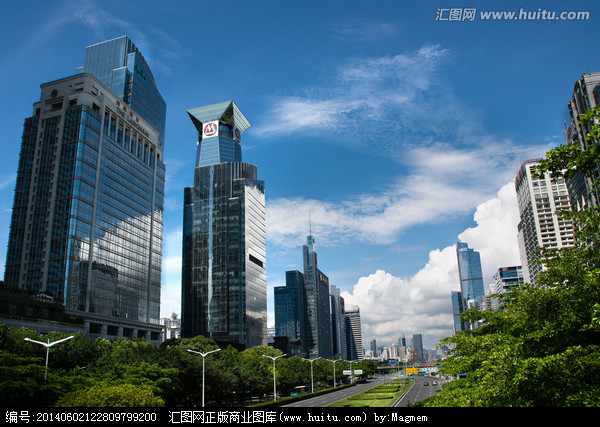Keynote speech at the Bloomberg webinar: “Hong Kong & Greater Bay Area: Unlocking cross-border investment opportunities”
Good day, everyone. I am delighted to join you today. Special thanks to Bloomberg for arranging the webinar on cross-border investment opportunities. The event couldn’t be more timely. Even though we are facing many challenges arising from the pandemic and geopolitical tensions, we should set our sight not only at the immediate problems at hand but also at the opportunities on the horizon. For the financial sector, pursuing greater excellence in our financial markets is important; but it’s equally important to look for new growth areas and get ourselves prepared for the new opportunities. One of these is the Greater Bay Area, or GBA. The grand strategy of building GBA into a world?class metropolitan cluster presents a unique platform to pursue policy breakthroughs for enhancing cross-border investment. So today I am sharing with you why Hong Kong is uniquely positioned to capture the GBA opportunities, as well as our continued efforts in fostering closer financial cooperation in the region.
Hong Kong’s resilience
When it comes to investment, safety is of utmost importance. Understandably, some investors are concerned whether Hong Kong can maintain its status as an international financial centre in future, given the triple whammy we have faced in the past year or so: social unrest, Covid?19, and most recently, the escalation of US-China tensions. So if you don’t mind, before we move on to the theme of today’s webinar, I would like to spare a few minutes sharing some facts about Hong Kong’s financial markets, which hopefully will help you put things into context.
We may face a bumpy road ahead with lots of uncertainties, but the same is true anywhere around the world today. Despite all these, Hong Kong’s financial sector has risen up to the challenges by demonstrating its resilience and breaking new grounds.
Just look at the currency market. The HKD market continues to operate smoothly under the robust Linked Exchange Rate System. We continue to see fund inflow into Hong Kong. In recent months, the HKD has stayed close to the strong side of the convertibility zone. In fact, since April the HKMA has to intervene repeatedly at the strong-side convertibility undertaking level. In around five months we have taken in over USD17 billion from the market and injected HK$130 billion. The continuous inflow has also been seen in banking deposit, which recorded a 5% growth in the first seven months of this year.
The strong performance of the stock market is another clear sign of our strength. Hong Kong stock market remains one of the most vibrant in the world. Last year, despite social unrest, we topped the global IPO league table again. This year, IPO activities continued to thrive. In the first eight months this year, over 80 companies were listed in Hong Kong, leading to a 74% year on year increase in funds raised.
Thanks to the strong fundamentals and sizeable buffers that we have built up over the years, Hong Kong’s financial sector entered the turbulent time from a position of strength. The peg, the bedrock of our financial system and the real economy, is supported by ample foreign reserves equivalent to around two times our monetary base. Likewise, our banking system remains healthy, with all key metrics above international standards. To name a few, Capital Adequacy Ratio at over 20%, a high Liquidity Coverage Ratio at over 150% and a low Classified Loan Ratio at 0.8%. Hong Kong’s financial system has held up well notwithstanding severe political, economic and financial stress in recent months. Financial stability is a necessary but not sufficient condition for Hong Kong’s development as an IFC. That’s why we also need to put in a lot of efforts to enhance the attractiveness of our financial services platform and capture new opportunities.
On this note, let me turn to the theme of my speech today – investment opportunities in the GBA.
Let’s start with the big picture, China, one of the few places in the world that still see positive growth nowadays. As the first major economy to come out of the pandemic with solid economic fundamentals, China continues to be a compelling investment theme for global investors. Better returns and manageable currency risk further enhance RMB assets’ appeal, especially in today’s persistently low global interest rates environment. Despite the rising tension with the US, a recent study by Morgan Stanley suggested that China would see portfolio inflows of US$3 trillion over the next decade. FTSE Russell’s latest decision to add Chinese government bonds to its influential World Government Bond Index is expected to further boost inflows into China. I must add that FTSE has made the right call but Bloomberg was there first. Mainland bonds will soon be part of the world’s three main fixed income indices. The impact of the inclusion of Mainland bonds in the Bloomberg-Barclays Global Aggregate Index and the J.P. Morgan Government Bond Index has already been evident. In the first eight months this year, the average daily turnover under Bond Connect increased 140% to nearly RMB20 billion compared to the same period last year.
Besides global investors’ strong demand for RMB asset allocation, the rapid wealth accumulation in Mainland Chinese households, especially in the GBA, presents another opportunity. Mainland China has seen a remarkable growth in the financial wealth of high net worth individuals. There are over 80,000 ultra?high net worth families in Greater China, an increase of around 20% over the past 3 years. The GBA has been and will continue to serve as a key engine of the growth. With nine well-off cities in the Pearl River Delta region and two Special Administrative Regions, the GBA has a total population of 70 million and a combined GDP of US$1.6 trillion. To help you make sense of the numbers, the GBA’s economy is already greater than some G20 economies, making GBA one of the most affluent regions in China. Not to mention that GBA boasts a cutting-edge innovation and technology hub and diversified industry chains. That said, many of the residents across the border are still under?served by the wealth management industry, particularly given their growing need to diversify investments beyond RMB assets.
Now, with its unique advantages, Hong Kong is well positioned to capture this potential growth. Today I would like to highlight two of our value propositions.
First, our critical mass of liquidity, product diversity and world-class financial services. As an international banking hub in Asia, Hong Kong has US$3 trillion worth of assets in our banking industry, and is home to 78 out of the world’s top 100 banks. The vast variety of products that we offer also ranks top in Asia. Our vibrant and diversified financial markets allow us to tailor make value-add solutions and products that meet the specific investment needs of every investor. We also have a cluster of professional service providers and highly skilled financial talents. We have over 1,800 asset management firms, including around 70 of the world’s top 100 asset managers. Our workforce provides abundant professionals supporting financial services, including over 45,000 certified public accountants, and over 11,000 practicing solicitors and barristers.
Second, we offer the best of both worlds in terms of opportunities and ease of access. Through Hong Kong, international investors can capture opportunities in the vibrant Mainland China market while continuing to operate with their familiar legal and regulatory frameworks, market practices and languages. The advantage of investing in Mainland China through Hong Kong is best reflected by the fact that Hong Kong intermediates two-third of all financial flows into and out of Mainland China. This ratio remains unchanged over the years despite the emergence of other financial centres in the region. The growing popularity of our Connect schemes among global investors serves as another good testimony: the Stock Connect now accounts for over two thirds of all A?shares trading by overseas investors, while the Bond Connect accounts for half of Mainland bond trading by foreign investors. This gateway role between Mainland and the rest of the world is unique and hard to be replaced or replicated: to Mainland China, Hong Kong is the only IFC that can be trusted to pioneer on its financial liberalization measures; to the international investors, Hong Kong provides a familiar and effective environment in which they operate and access the Mainland markets. So what more can be done to further enhance this gateway function? I think we are all here today with that question in mind. One obvious area of opportunity is the GBA. There is ample room to foster closer financial cooperation in the GBA.
- Continued efforts in fostering closer financial cooperation in GBA
Earlier this year, the Mainland regulators published the “Opinion on Providing Financial Support for the Development of the GBA”. Containing some 30 policy initiatives ranging from cross-border investment to fintech, the Opinion provides a policy blueprint for financial market development in the region. The HKMA has been working closely with our Mainland counterparts on many of the measures promulgated in the Opinion.
One of our priorities is the Wealth Management Connect pilot scheme in the GBA. This new initiative will allow Hong Kong and international investors to better access investment opportunities in the Mainland. It also brings GBA customers to our wealth management industry. In other words, the initiative will facilitate cross-boundary portfolio investments by individual residents in the GBA. That not only marks a big step towards closer financial cooperation in the region but also promotes the further opening-up of the Mainland’s financial markets. In June 2020, together with our Mainland and Macau counterparts, we announced the launch of the Wealth Management Connect and unveiled the policy framework. Like other Connect scheme, this new initiative will take an incremental approach starting on a prudent footing.
A smooth start is essential, because it will pave way for more full-fledged wealth management services going forward. We have been engaging stakeholders to solicit views from the market, and are pleased to learn the industry is supportive of the initiative. Taking into account the industry’s helpful feedback, we are working closely with the relevant Mainland authorities and local regulators to thrash out the implementation details of the scheme. We hope to be able to consult the industry on these implementation details soon and to roll out the scheme as soon as practical.
We are also exploring other initiatives with our Mainland counterparts to further facilitate cross-border capital flows. For instance, to facilitate Hong Kong residents purchasing property in the GBA, we are in discussion with Mainland authorities to provide policy headroom for Hong Kong banks to provide cross-border mortgage services. There has already been encouraging progress – the Guangdong authorities have recently streamlined registration procedures for Hong Kong and Macao banks in mortgage registration of property in the province. We will continue our efforts in ensuring the smooth operation of cross-border mortgage services.
- Closing
Before I end my speech, let me recap a few key points:
- First, Hong Kong has coped with the challenges well and remains a vibrant international financial centre and a premier wealth management hub;
- Second, the unique advantages of Hong Kong will help us continue to serve international investors as the dominant gateway to the Mainland markets;
- Third, new opportunities for cross-border capital investments are emerging in the GBA, and I believe the Wealth Management Connect will be a channel with enormous potential for international investors to tap into the wealth management market in the region.
The message for the financial industry is clear: no long-term strategy is credible without China. And no China strategy is complete without Hong Kong. Once again, I would like to thank Bloomberg for inviting me to share with you my thoughts. I hope you would enjoy the rest of the webinar today.





















































First, please LoginComment After ~